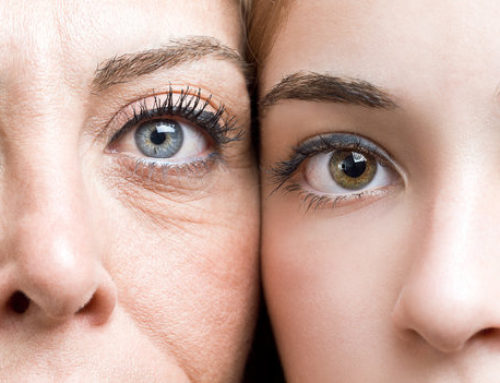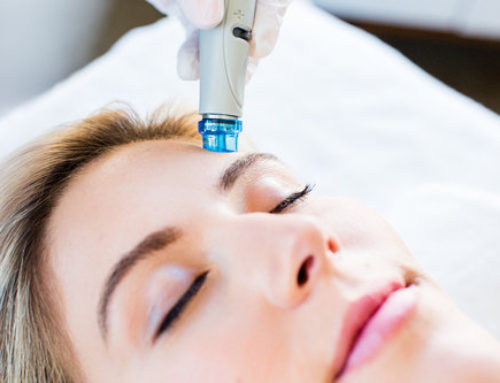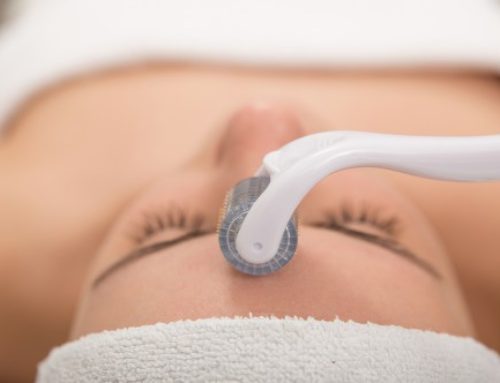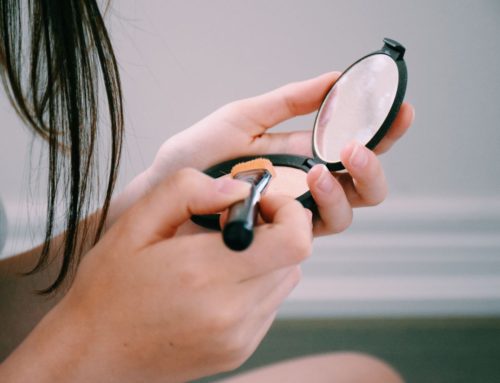From Greatist.com
If you believe the hype, CBD oil cures everything. Allegedly, cannabidiol, the chemical extracted into CBD oil, can treat anxiety, epilepsy, acne, pain, schizophrenia, and basically everything else that ails you.
Is this all the wishful thinking of the people who have worked so hard to legalize weed? Well, not exactly. But despite all the very hopeful reports out there about the ways it may work, we’re still at the very early stages of research.
“We still don’t fully understand all of the mechanisms involved in CBD’s actions,” says Marcel Bonn-Miller, Ph.D, who studies CBD and its effects, primarily on PTSD. “We know some pieces but definitely not the whole story at this point. A lot of our understanding of the many potential benefits of CBD is rooted in work either on the cellular level or in preclinical models with rodents.”
So keep calm and read on to find out what science actually knows so far—and what’s on the horizon for this maybe-miracle drug.
CBD 101
The cannabis sativa plant (yup, that’s a marijuana or hemp plant) produces chemical compounds called cannabinoids, and cannabidiol is just one of them. The one most of us are better acquainted with is THC, the chemical responsible for, you know, getting you high.
Research into cannabis has been going on for several decades, but it wasn’t until the early 90s that scientists uncovered the endocannabinoid system—which is how the body actually reacts to the chemicals from cannabis and also produces its own similar chemicals, called endocannabinoids.
It turns out that this system also helps regulate the nervous system, the immune system, and organs throughout the body. As far as researchers can tell so far, THC plugs in directly to the body’s cannabinoid receptors—but CBD does things a little differently, Bonn-Miller explains.
“CBD increases the circulating levels of your natural endocannabinoids, which, in turn, interact with your cannabinoid receptors,” Bonn-Miller says. “CBD has also been shown to interact with serotonin receptors, and that may be part of why it has some beneficial effects on anxiety. It also interacts with some pain receptors, which may be why we’re starting to see effects on pain and inflammation.”
Basically, Bonn-Miller says that because CBD works indirectly, it has a much broader reach with the potential to treat a variety of mental and physical ailments.
And while we don’t know exactly how the cannabinoids work to address different diseases (such as epilepsy, discussed below), we do know that CBD does not appear to work with the same receptor that THC does, which likely explains why people don’t experience psychoactive effects (a.k.a. feeling stoned) when taking CBD.
What CBD Definitely Helps: Pediatric Epilepsy
Let’s start with the most officially proven medical use of CBD. Earlier this year, the FDA approved the first-ever drug containing CBD, Epidiolex, to treat two rare forms of pediatric epilepsy. To get to that point, the drug’s manufacturers had to do a whole lot of randomized, placebo-controlled trials on humans. They had to study how much children could take, what would happen in case of overdose, and any possible side effects that would occur.
Though research into CBD and epilepsy began due to anecdotal reports (people telling their doctors how well it worked for them or their children), this doesn’t necessarily mean that any over-the-counter CBD oil would work, Bonn-Miller cautions.
“The data supporting efficacy and dosing are specific to one product: Epidiolex,” Bonn-Miller says. “That’s not necessarily translatable to ‘Joe Bob’s CBD Blend.'” A CBD extract you buy online or in a dispensary will almost certainly have less CBD in it, he explains, and will contain other cannabinoids—meaning that it will work differently and will need to be dosed differently. “This is not to say that ‘Joe Bob’s CBD Blend’ definitely isn’t going to be effective for pediatric epilepsy, but it means that we need to study it before we know.”
What CBD May Help: Anxiety, PTSD, Depression
No other potential use for CBD has been studied as extensively as epilepsy treatment, but researchers are getting there. There’s a lot of anecdotal evidence to support the claims that CBD is great for anxiety, depression, and PTSD, and studies have already proven that CBD works for these issues in mice, but of course, mice aren’t people.
“There haven’t been gigantic clinical trials of CBD for anxiety, but there are some small sample human studies that have shown a signal that indicates it is a condition that we should be pursuing in larger studies,” Bonn-Miller says.
What It May Help: Pain and Inflammation
You’ve probably heard about athletes taking CBD oil for their aching muscles and celebrities rubbing it on their feet to endure red carpets in high heels. Is it really working?
“CBD seems to be an even more potent anti-inflammatory than some steroids,” says Bruce Nicholson, M.D., director of Pain Specialists of Greater Lehigh Valley. “Some studies also suggest that CBD oil can function as a nerve protectant and treat nerve injury pain, but because it is not legal in every state, it’s been difficult to research.”
CBD and Beauty
There is also a whole lot of hype out there about how CBD is ideal for treating skin conditions.
“CBD has multiple uses in improving inflammatory conditions like eczema, including improving wound healing, itch, and pain, and has even been reported to improve a rare blistering disorder of skin,” says Rachel Nazarian, M.D., of Schweiger Dermatology Group.
But again, CBD as a topical ingredient for skin hasn’t been researched in large-scale human tests yet. As with many other ingredients we pay top dollar for in our lotions and potions, CBD is not yet a sure thing, and because cosmetics are not rigorously regulated by the FDA, the manufacturers can make whatever claims they want.
Still, Nazarian says she and her colleagues believe in its promise, and they are especially encouraged by the fact that it seems to be quite safe to use.
“Although we are certainly in need of more studies, these take a lot of time and money from the medical community to be done properly—and as physicians, we prioritize helping our patients if the evidence is encouraging, and the risk is minimal,” Nazarian says. “CBD oil offers a great option for many people.”
Buyer Beware
It’s the Wild West out there. Without any federal regulatory body checking labels, consumers have very little way of knowing what they’re buying when they purchase CBD oil. Bonn-Miller co-authored a study that found that 26 percent of CBD products on the market contained less CBD than their label claimed. So the amount you need for an effective dose could vary drastically, not just from product to product, but from bottle to bottle of the same product.
“A CBD company may create a CBD oil, test it, and use the test results to create their label,” Bonn-Miller says. “The problem is if they never test their product again, or they test it once a year, you have no idea whether each batch is the same as the first one that they used to create the label. The vast majority of companies are not using manufacturing standards that assure product consistency over time. Companies should be testing every batch they make and tossing batches that don’t fall within the specs of their label.”
As a consumer, you can look at the manufacturer’s website to see whether they batch-test their products, or ask them directly. You could also send a sample of your CBD oil to a testing facilityyourself, something Bonn-Miller says he would do if he were trying to treat someone with a severe issue such as epilepsy. Testing can also determine whether the product contains pesticides, heavy metals, or other toxins.
Bonn-Miller says in an ideal scenario, CBD companies would fund more of their own research to back up their claims.
“Right now, any claims and dosing recommendations by any company making a CBD product for the medical marijuana market is purely anecdotal,” he says. “Asking 100 people who use your product whether they feel better isn’t real science. The products on the market are also different from what was used in the scientific studies that they are basing their claims upon. If a study found an anti-anxiety effect when dosing humans with synthetic CBD, that doesn’t mean that your CBD oil that contains 18 percent CBD is going to reduce anxiety. It might even have the opposite effect.”
What Are the Risks of CBD Oil?
The good news is that most of the official research done on CBD oil has shown that there are very few negative side effects from using it. However, CBD is not without some side effects. Most notably, in the clinical studies for epilepsy, sedation was one of the more common side effects. Decreased appetite and diarrhea were also seen in some patients. Depending on what other medicines they are taking, certain patients may need to have periodic blood tests to check on liver function.
In addition, CBD may cause some drug interactions. However, Bonn-Miller also adds that there is evidence that it does not have any dependence potential.
The legality of CBD is a real conundrum, which is a hurdle making it difficult for many necessary studies to get off the ground. Hemp (a cannabis plant with less than .3 percent THC) is legal in all 50 states, but when you start extracting CBD from the flowers of that plant, that might be technically redefining the plant as marijuana.
On the other hand, marijuana-derived CBD and anything else derived from a cannabis plant was still classified by the DEA as a Schedule I drug (defined as a drug with “no currently accepted medical use and a high potential for abuse”) until October 2018. In 2016, the DEA stated that all extracts containing more than one cannabinoid would remain classified as Schedule I. However, the approval of Epidiolex had an influence in changing this, and prescription CBD drugs with a THC content of below 0.1% have now been reclassified as Schedule 5, the lowest rating.
All this means that scientists can still only obtain marijuana-derived CBD from farms licensed by the National Institute on Drug Abuse (which until this year meant only one farm owned by the University of Mississippi). As for whether you should have a preference for CBD that comes from hemp, marijuana, or a pure synthetically produced version, there are some theories that THC—and even the smell and taste of cannabis—might make CBD more effective, but Bonn-Miller says these ideas have yet to be proven.
Then there’s always the risk that you’re wasting your money if some of the claims around CBD turn out to be overblown (or the product you’re buying is bogus). But if CBD does even a fraction of what we think it does, by all means—pass the dropper on the left-hand side.





